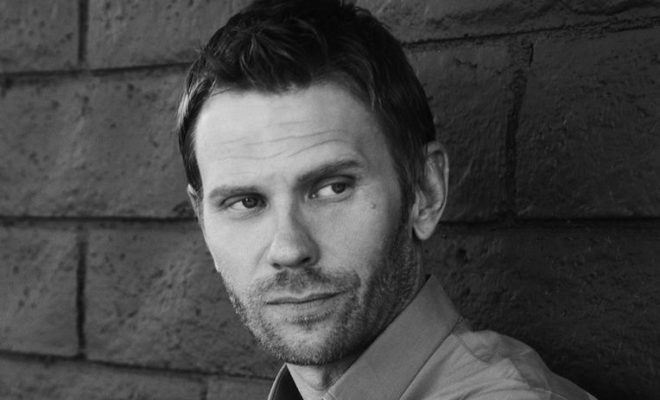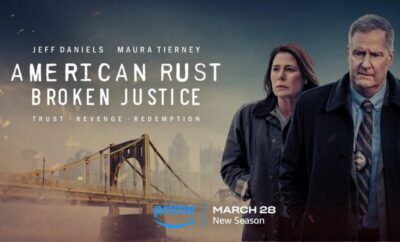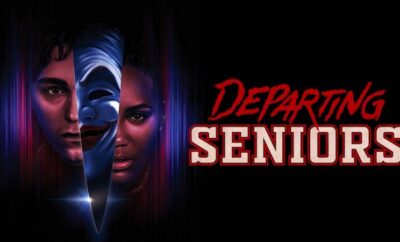
Interviews
Mark Pellegrino – The Guardian Project
By: Madison Ruby
Q) Please tell us more about The Guardian Project and what inspired it.
A) The Guardian Project is a three-tiered solution to the epidemic problem of online aggression. We see the problem as a spectrum of aggression, ranging from targeted harassment to outright libel and slander. We believe the problem is incentivized by 1) anonymity, 2) The changing nature of what constitutes media, 3) industry-wide subjective standards for evaluating unlawful speech, 4) The powerlessness of the victim due to anonymity and the prohibitive costs and legal obstacles to initiating defamation lawsuits against abusers. In other words, lack of objective standards and lack of substantive consequences incentivizes online violence.
The first tier of the project is a reality television series a la “Catfish” that uses the resources of a network to get justice for victims of online aggression. We believe this will substantially reduce incentives one and four. A person who has had his or her life turned upside down by viral false narratives (lost employment and/or reputation) can turn to us for help in reconstituting his/her reputation and pursuing legal action against the perpetrators. Those who engage in targeted harassment will likely be pursued similarly, with a focus on making the victim whole and retributive justice against the abuser. For the more subtle cases of online bullying, we hope to have negotiated sit downs between the abuser and the victim where the former can see and interact with the latter in person. In the past we’ve seen this “humanization” of the other have extremely positive effects on both the victim AND the victimizer, who both now see each other as real people, not screen names and avatars. We would further make mental health resources available to both parties, with the victimizer agreeing to one year of supervised internet activity with an eye towards permanently changing his/her communication habits by learning to productively channel anger. We hope this makes someone who was part of the problem be part of the solution.
The second tier would be working directly with social media companies to 1) develop objective standards for defining unlawful speech and 2) eliminate anonymity.
We think the standards that should constitute unlawful speech are simple because those standards are the same for defining ANY rights violation: Force or fraud. In other words, lies (indirect force) and violence are unlawful AT ALL TIMES. Additionally, as social media has changed the face of media itself – unseating establishment news entities as sources of information – individuals have, in effect, become reporters. Their content IS news, and those providing that kind of information should be as accountable as any reporter. This leads us to anonymity. At the moment, one person can have an unlimited number of accounts. When one gets shut down, they can simply switch to another or use many simultaneously. This has been used to amplify lies and viralize negative messaging. If there is universal verification – where your social media presence is linked to your actual identity – you would not be able to have sock accounts to falsely amplify your message. Bots would be a thing of the past, as would other bad-faith actors. We also think it advisable to share these identities across platforms so that when one causes real trouble on one platform, another platform is red flagged. This private and objective regulation can act as a behavior modifier and reduce aggression. The trade is if you want to be online, don’t lie, cheat or threaten people and you’ll be allowed to be online.
The third and final tier is legislative activism. We do not think Congress should regulate speech, but the laws around social media harassment, libel and defamation need to be up to speed with the technology. Let’s face it, the people ARE the media now and if they are going to spread content about others that will be seen by potentially millions of people, then the law needs to reflect that content capacity and the responsibility involved. Social media has increased the power and reach of individuals, but with that increase comes a moral and legal responsibility.
Q) Why does this project mean so much to you?
A) Because I was the victim of successive waves of online harassment where the libelers knowingly spread lies about me while linking to social media influencers, employers and fellow actors to their false narratives in an attempt to get me fired from all of my jobs. It’s still going on today. I also witnessed a fellow castmate get his life torn apart by false accusations, which became viral on social media. Nothing he did stopped the onslaught. Even when he sent cease and desist orders to the main offenders, they would laugh at him and double down on their lies. They were heedless of any legal repercussions, even going so far as to take selfies with their cease and desist orders in a frame. The threat of legal action (which my friend did not have the resources to bring to fruition) became a badge of honor to the harassers. The primary accuser finally confessed to lying, but by that point (after two years of unremitting harassment), his life had already been destroyed.
Q) What effect do you want this project to have on all generations?
A) I haven’t thought about this too much, but off the top of my head, perhaps a renaissance of accountability? What does that mean? It means bringing us forward to a time when you are responsible for yourself, for what you do and say. PERIOD. For generations we’ve been ceding moral agency to the government, asking it to take more and more responsibility for our lives. In other words, we’ve expressed a persistent preference for someone else to be more accountable for us than we are for ourselves. What has been the result? Mass, cross-generational, infantilization and the emulation of victimhood; we’re now defining ourselves primarily by our inability to do things, including our inability to rise above feelings and be civil; we’ve become a society that is too helpless to be accountable. Time to change that.
Q) What is something you hope to accomplish through The Guardian Project?
A) As I said earlier, I would like to make individual accountability the primary it once was. I would also like people to understand that freedom flourishes in an ecosystem of free debate. A free society is not one in which ideas are forbidden or locked out of the public discourse but are, instead, subjected to the light of day and the scrutiny of all minds. The worse the idea, the MORE imperative it is that it be exposed and critiqued. The more far-reaching a policy, the more it must be picked apart by anyone willing to do so. An additional consequence of ceding moral accountability to overseers and creating an infantilized society is the creation of a hyper fragile people. Far from decreasing violence, hyper fragility is now the main cause of most physical and relational aggression we see today, as debate and challenge averse people to use force and the threat of it to shut down the opposition. Civility comes from two qualities: accountability (taking moral responsibility for your actions) and anti-fragility (knowing that resistance is the way you grow and get better)
Q) What is the most important thing when teaching kids to be civil?
A) I rely on Atticus Finch of To Kill A Mockingbird fame for advice on civility: Civility partly starts with empathy. Put yourself in the other person’s shoes. Understand that person is a person just like you, who has feelings just like you, who can be hurt, just like you. If you understand those things you may become curious as to how this person, who feels and can be hurt, came to conclusions so different from your own. That curiosity can spark an enlightening dialogue…a learning dialogue is always civil.
Q) What do you suggest kids do when faced with a bully?
A) For the relational bully online, I say do not fight them. Block. Mute. Report. Get offline and stay off until the craziness blows over. Kid bullies always move onto other targets and tend to be excited by a victim’s attempt to fight back. They’ve developed a bizarre merit system based on bullying and no kid should go anywhere near that.
For the physical bully on the playground, I say to parents to put your child into a very good martial arts school (Gracie Jiu-Jitsu is optimal) where they will learn great self-defense and a moral philosophy of peace and self-awareness. Your child should never allow a bully to physically touch him or her without consequences. Yes…I am encouraging kids to be anti-fragile…to fight if the alternative is to passively take a beating. I believe the terrible and sudden escalations in violence today (in tragic school shootings) happen in part because of a systemic non-confrontational attitude towards bullies, which does not enable kids to work out their problems but sublimates them until they become unmanageable.
Q) How do you hope The Guardian Project will motivate people to be less cruel to one another?
A) Personal accountability is not just a sound bite. It is a part of a whole philosophy of life and ethics that makes justice possible. When you know you will be held to account for the things you do and say, you are incentivized to hesitate in cruelty and promote the truth over lies because you’ve got something to lose. Consequences make a better world. Insulation from consequences leads to habitual violence, lack of self-awareness and the rampant narcissism we’re seeing everywhere today.
Q) How does this project relate to your role/character on “13 Reasons Why?”
A) “13 Reasons Why” was about being cognizant of the impact your behavior can have on another person. It showed how all of our actions are impactful to someone. You are either contributing to someone’s growth or destruction; there really is no middle ground in life. So be constructive. That’s what we are trying to do.
Q) How can our readers get active and participate in The Guardian Project?
A) We just got our Kickstarter fully funded, so we’ll be deep into getting this project completed over the next six months. In the meantime, put The Guardians in your profile page as a show of support (don’t forget the devil and angel emojis).
Q) What are the other recent projects you have been busy working on?
A) About to start a TV show in March.
Q) We recently said goodbye to “Supernatural.” What did you personally take away from your time on the series?
A) That heroes matter. We need heroes as much as we need air and food and water. The Winchesters taught me to defy even God himself if it means doing the right thing.
Q) What would you like to say to everyone who are fans and supporters of you and your work?
A) I can’t tell you how much I appreciate your support. I think you know that from all the time I take to talk with you online and at cons. I take you very seriously and will always be there for you as you have been for me. I hope The Guardian Project is one way to give back.





You must be logged in to post a comment Login